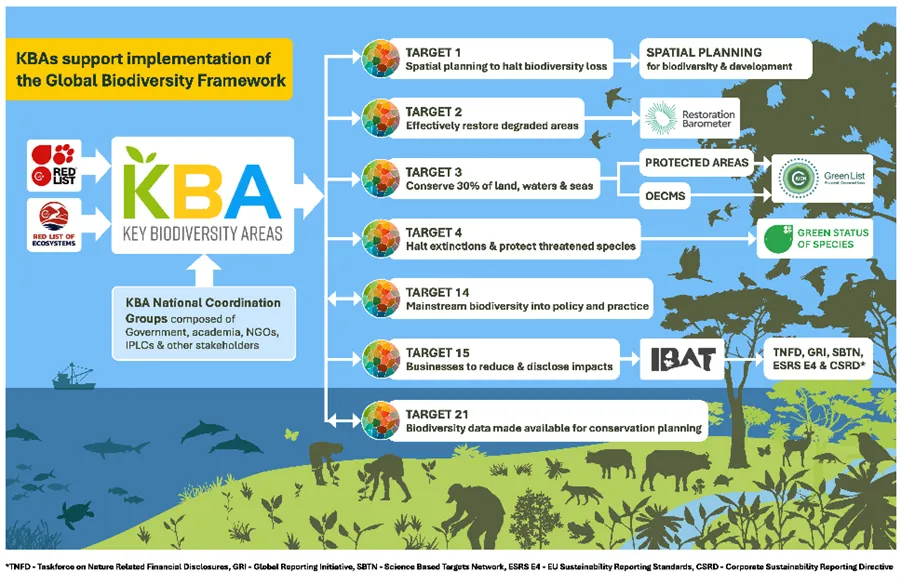This makes KBAs a vital tool for aligning national conservation efforts with international commitments.



The global conservation community is increasingly embracing KBAs as a unified way to identify areas of importance for biodiversity. The criteria used to identify KBAs were developed through extensive global consultation, tested and refined by conservation experts from every continent. KBAs were created to harmonise the many different methods that once made it challenging to agree on which places matter most, and they provide a scientifically rigorous and standardised approach to pinpointing these vital sites.
KBAs Informing National Spatial Planning
KBAs can be used to strategically expand protected area networks, helping to meet international conservation goals such as the Kunming-Montreal Global Biodiversity Framework (KMGBF) of the Convention on Biological Diversity (CBD).
While every KBA is vital for biodiversity, the KBA Standard (Section II.13) clarifies that not all KBAs are necessarily priorities for any particular type of conservation action. However, KBAs serve as a foundational dataset for systematic conservation planning, helping guide where efforts should be focused and contributing especially to the KMGBF Targets 1 (spatial planning), 2 (restoration), and 3 (30X30 planning).
It is critical that the focus of the KMGBF is on globally significant sites if we are to succeed in achieving the mission and goals to reverse biodiversity loss and halt human-induced extinctions.

KBAs in Multilateral Environmental Agreements (MEAs)
KBAs guide the identification and description of important sites under international conventions, including: